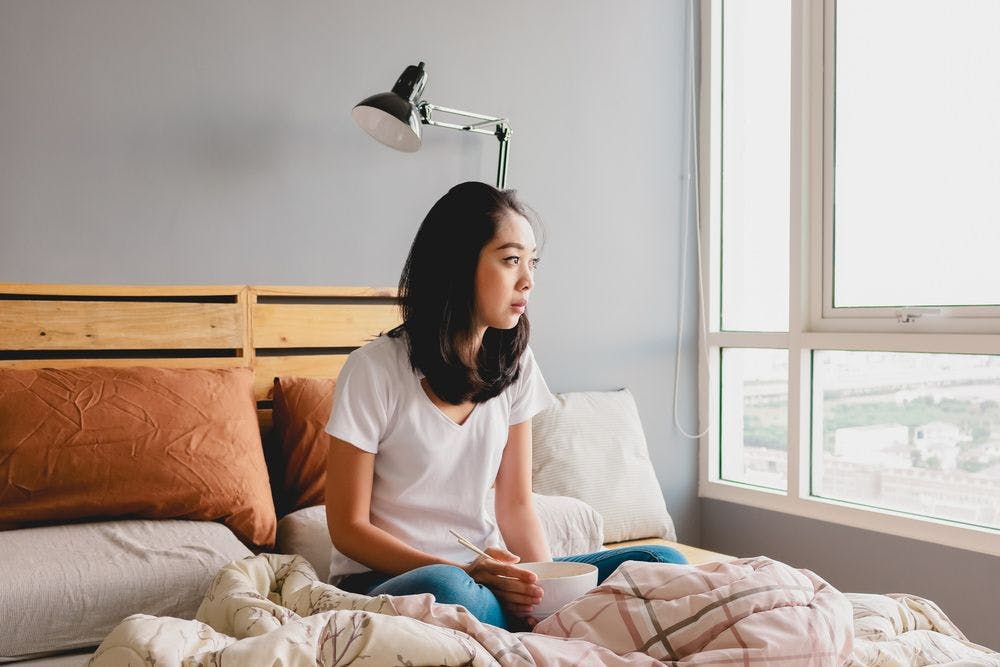7.4 million adults have reported loneliness since lockdown began
updated on Jun 12, 2020

Across Great Britain, millions of adults are experiencing loneliness and poor wellbeing as a result of lockdown measures
Since lockdown began on 23 March, people across the UK have been thrust into a new way of life. And that hasn’t come without consequences.
A study from the Office for National Statistics (ONS) found that, from 3 April to 3 May 2020, 30.9% of adults (7.4 million) reported that they had seen their wellbeing negatively effected by loneliness, with a further 2.6 million adults reporting that they felt lonely ‘often’ or ‘always’.
With our routines disrupted, and meet-ups with family and friends outside our households halted, it’s unsurprising that we would soon begin to feel the burden of such uprooting measures.
That said, the ONS study highlights that working-age adults living alone were more likely to experience loneliness ‘often or always’ than the average rate for adults, with this trend also noted in those who have health problems, live in rented properties, or who were single.
In normal times, nine in 10 adults ‘agree’ or ‘strongly’ agree that they have people who would be there for them if they needed support. But the study suggests that lockdown has left us feeling more isolated than before.
“The Office for National Statistics has been researching people’s well-being for nearly a decade, providing a different perspective on how our country is doing, and on social inequalities. 'Lockdown' affected everyone, but responses differed,” explains Dawn Snape, Assistant Director of Sustainability and inequalities Division, ONS. “‘Lonely’ people were more likely than others to be struggling to find things to help them cope and were also less likely to feel they had support networks to fall back on.”
In fact, only seven in 10 people now feel that they had a support network around them, likely affected by the restrictions on who we can see.

Just seven in 10 people believe they have support around them
Of course, there is an end in sight as lockdown slowly begins to lift. This week, PM Boris Johnson announced that single-person households will now be able ‘bubble’ with one other household – with No 10 saying that the change was brought in to help combat loneliness.
Struggling with loneliness? We spoke to a counsellor about the different types of loneliness and how we can tackle them.
As the world gradually inches out of lockdown, we can hope that those connections that make all the difference to our mental health and wellbeing will soon be reignited. And for many, this could be the moment that we disocver a new appreciation for the people in our life who matter most.
If you are in crisis or struggling with your mental health, call Samaritans on 116 123 or email them on [email protected]

